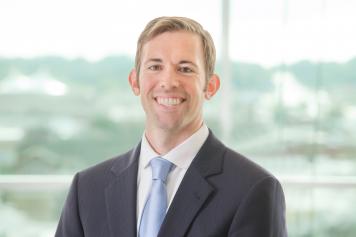.jpg)
Although strokes most commonly affect older adults, they can happen at any age. Approximately 25 percent of strokes occur in patients younger than 65 years old. Younger stroke patients may have different risk factors and causes of a stroke compared to older adults. They also face challenges related to their unique economic and social circumstances. Stroke can significantly impact careers, financial stability and family responsibilities at a time in life when these issues are a primary focus.
Common stroke risk factors (high blood pressure, cholesterol, diabetes, etc.)
Common stroke risk factors apply to all adults, but are often absent in young and otherwise healthy individuals. Additional investigation should be considered in this age group depending on individual characteristics.
Other potential causes of stroke in young people include:
• Blood clotting disorders
• Drug use
• Inflammation in blood vessels (vasculitis)
• Congenital (present since birth) or acquired blood vessel narrowing
• Congenital (present since birth) heart disease
• A sudden tear in an arterial wall in the neck (dissection), either spontaneous or as a result of trauma
• Blood clots involving the venous system of the brain
• Genetic disorders associated with stroke
Challenges for Stroke Recovery in Young Adults
Career – Having a stroke at a young age can cause temporary or permanent changes in employment. Those who are able to return to work may face challenges related to weakness, fatigue, language impairment and/or problems with memory or concentration. Adaptive equipment or a change in work responsibilities may be required, at least in the short term.
Finances – When a stroke occurs many years prior to the age of retirement, patients typically do not have enough savings to support themselves and their families during a time of crisis. This affects not only the patient, but also their significant other, family members and/or friends who may need to take time off from work to provide care.
Life expectancy – Young stroke survivors have a long life ahead of them, meaning many years of dealing with the effects of their stroke. Prolonged financial and caregiving arrangements may be needed.
Family – Family roles and responsibilities change significantly with age. A young stroke survivor may be thinking of starting a family or may already have children who depend on them. The effects of a stroke add to the already significant stress of being a parent. The loved ones of the stroke survivor also face added responsibilities and changing roles.
Resources for Stroke Recovery in Young Adults
Young adults with a stroke face unique challenges. Fortunately, young people tend to recover faster and have a better prognosis and long-term survival rate compared to older adults. This is likely because of increased brain “plasticity” (the ability of the brain to change—physically, functionally and chemically) and compensate following an injury. Additionally, young adults often have fewer chronic medical problems that can be seen in older patients.

The path to recovery must take into account the social and economic challenges facing young stroke survivors. Rehabilitation is guided based on the nature of family support, presence of children or other dependents, and goals of returning to work or school. Collaboration among patients and family members, therapy services, social workers, physicians and nurses is needed to achieve the best functional outcomes and highest possible quality of life. Resources can be found at YoungStroke.org.
To schedule an appointment with a stroke expert at Nebraska Medicine, call 800.922.0000.


